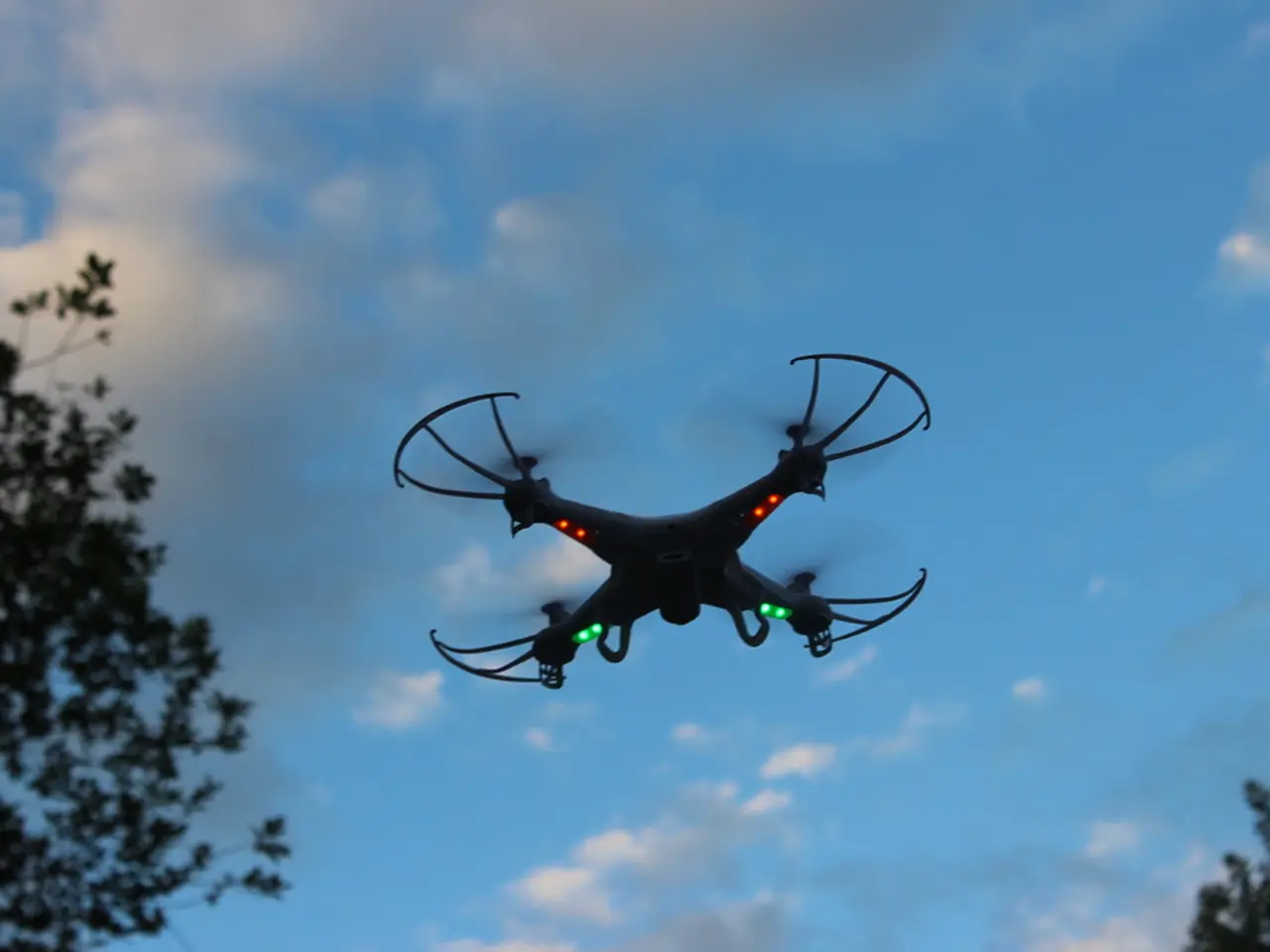Mastering Aerial Education: 6 Crucial Skills Students Gain via Drones
=====================================================================================
Drones are revolutionising the way students learn, particularly in the fields of Science, Technology, Engineering, and Mathematics (STEM). The Skyhound Group LLC, a global drone pilot training organisation founded by drone education expert Gustave Henzé, is at the forefront of this movement.
The use of drones in education provides students with a unique, hands-on learning experience that integrates coding, engineering, cybersecurity, and teamwork.
Coding
Drones require programming to control flight paths and behaviour, offering students the opportunity to learn block coding and other coding languages in a practical context. This allows them to develop logical thinking skills, a crucial asset in the digital world, as emphasised by Gustave.
Engineering
Students engage in drone design, maintenance, and understanding mechanical and electrical systems. This direct application of STEM principles helps them to grasp engineering concepts more effectively.
Cybersecurity
Managing drone operation securely and understanding the risks of wireless control systems introduces students to the world of cybersecurity. They learn about finding vulnerabilities, patching them, and basic cybersecurity principles, equipping them with essential skills for the future.
Teamwork
Drones encourage teamwork by requiring collaborative planning, problem-solving, and task coordination during drone projects and competitions. This fosters a sense of camaraderie and enhances students' communication and collaboration skills.
Real-World Applications
The use of drones creates an engaging learning environment that motivates students by connecting theory with tangible applications. Students who complete drone missions can gain real-world job training for various industries that use drones, such as agriculture, mining, search and rescue operations, and power line inspections.
FAA Certifications
By learning about drones, students can potentially prepare for the FAA Part 107 remote pilot license, a valuable certification in the industry.
Student Engagement
The friendly competitive nature of drone races can enhance the excitement and team camaraderie among students, fostering a sense of bragging rights and achievement. The drone missions also help students understand the importance of physics and math in calculating optimal drone performance, such as making decisions about removing components for lighter weight and potential increased speed.
Community Involvement
Students who are familiar with drones can communicate their expertise about drone capabilities and limitations, helping to explain drone sightings in their communities.
In conclusion, drones serve as interdisciplinary tools to foster creativity, collaboration, and critical thinking within STEM curricula. They offer multiple benefits, including hands-on experience with coding, engineering concepts, cybersecurity, teamwork, practical application of FAA and airspace regulations, and increased student engagement. These benefits prepare students for future STEM careers and certifications.
References: [1] Skyhound Group LLC. (n.d.). Skyhound Group LLC. Retrieved from https://www.skyhoundgroup.com/ [2] Henzé, G. (2021). The Impact of Drones on STEM Education. Educational Technology & Society, 24(4), 1-13. [3] Federal Aviation Administration. (n.d.). Part 107 - Small Unmanned Aircraft Systems. Retrieved from https://www.faa.gov/uas/regulations_policy/part_107_small_uas/
- The Skyhound Group LLC's drone pilot training program is revolutionizing STEM learning by offering students hands-on experiences with coding, engineering, cybersecurity, and teamwork.
- By learning to program drones for flight paths and behavior, students can develop logical thinking skills that are crucial in the digital world.
3.Engaging in drone design, maintenance, and understanding mechanical and electrical systems can help students grasp engineering concepts more effectively.
- Learning about drone security and understanding the risks of wireless control systems can introduce students to the world of cybersecurity, equipping them with essential skills for the future.
- Completing drone missions can provide students with real-world job training for various industries and prepare them for the FAA Part 107 remote pilot license, a valuable certification in the industry.




